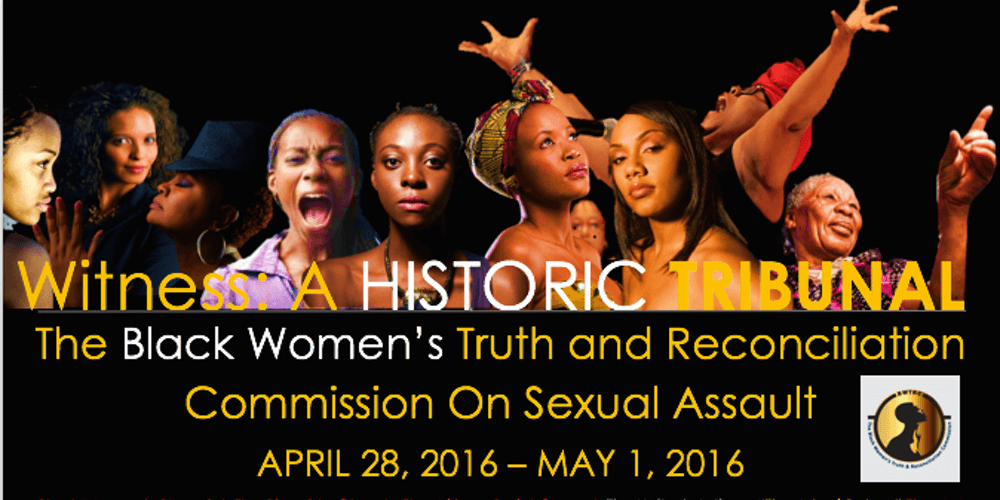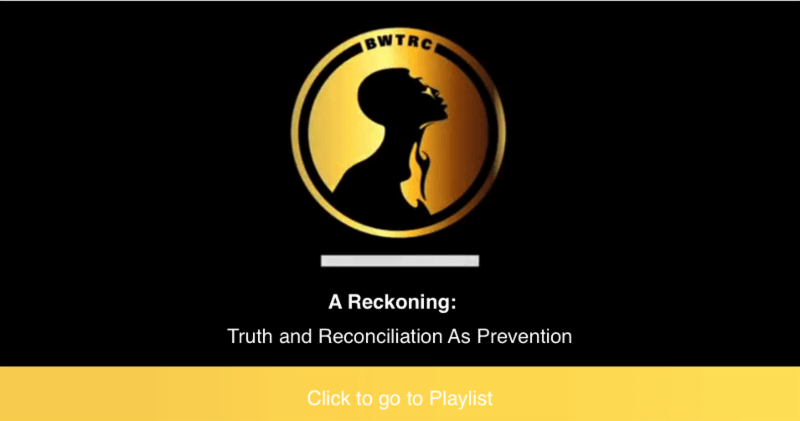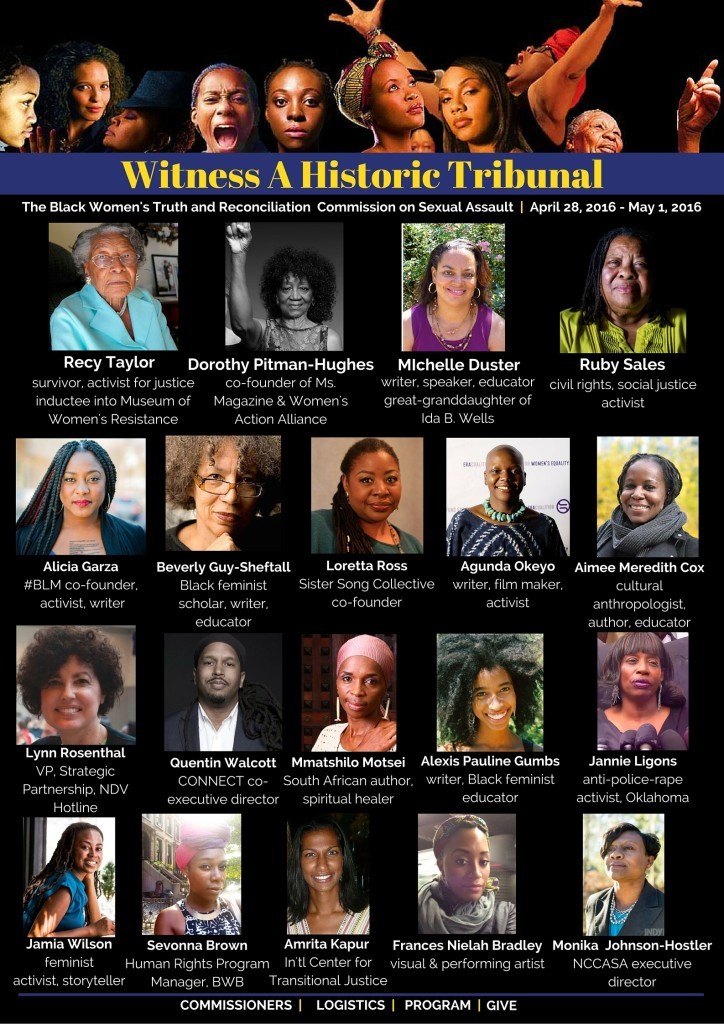Asking Strategic Questions: Preparation for the Black Women’s Truth and Reconciliation Commission on Sexual Assault
 As someone dedicated to the prevention of sexual violence, I recognize that we still have much to learn. We need truthful and transformative conversations about the impact and origins of sexual violence in our country, in our communities and in our homes. We need to explore what actions we can take to transform our communities and our country in order to prevent sexual violence. As President Obama said in his Presidential Proclamation for Sexual Assault Awareness and Prevention Month “This month, we reaffirm our commitment to shift the attitudes that allow sexual assault to go unanswered and unpunished, and we redouble our efforts to prevent this human rights violation from happening in the first place.”
As someone dedicated to the prevention of sexual violence, I recognize that we still have much to learn. We need truthful and transformative conversations about the impact and origins of sexual violence in our country, in our communities and in our homes. We need to explore what actions we can take to transform our communities and our country in order to prevent sexual violence. As President Obama said in his Presidential Proclamation for Sexual Assault Awareness and Prevention Month “This month, we reaffirm our commitment to shift the attitudes that allow sexual assault to go unanswered and unpunished, and we redouble our efforts to prevent this human rights violation from happening in the first place.”
But talking about how and why sexual violence happens is not easy, and certainly not always comfortable. In order to prevent sexual violence, we must understand the context of sexual violence and center how legacies of racism, classism, patriarchy, and heterosexism collide and collude to create conditions ripe for the violence to occur in the first place.
I recently returned from South Africa where I was part of the Move to End Violence International Learning Exchange. I learned about South Africa’s Truth and Reconciliation Commission from the 1990s that looked at human rights violations that were committed during Apartheid. Farah Tanis, one of my colleagues whom I traveled with, has been inspired to create a truth and reconciliation process here in this country. Her organization Black Women’s Blueprint is convening the Black Women’s Truth and Reconciliation Commission on Sexual Assault that will take place April 28 – May 1, 2016.

I encourage all prevention practitioners to engage in this process of asking strategic questions that are posed in Black Women Blueprint’s Digital Reckoning videos. These questions can jump start honest dialogue about the latent belief systems we, and others might carry in our hearts and minds and which affect how we think about, develop, and implement prevention efforts to end violence in our communities.
As it is Sexual Assault Awareness Month, this is the time to engage in discussions and ask the questions posed in the videos as we build multiracial coalition to truly change the landscape of gender-based violence for good in this country.
PreventConnect/CALCASA Executive Director Sandra Henriquez will be attending the Black Women’s Truth and Reconciliation Commission on Sexual Assault in New York at the end of the month. We hope other prevention practitioners will join us at this historic event.

Learn more about the Black Women’s Truth and Reconciliation Commission on Sexual Assault and how you can take action to support this effort and to create change in your communities.
